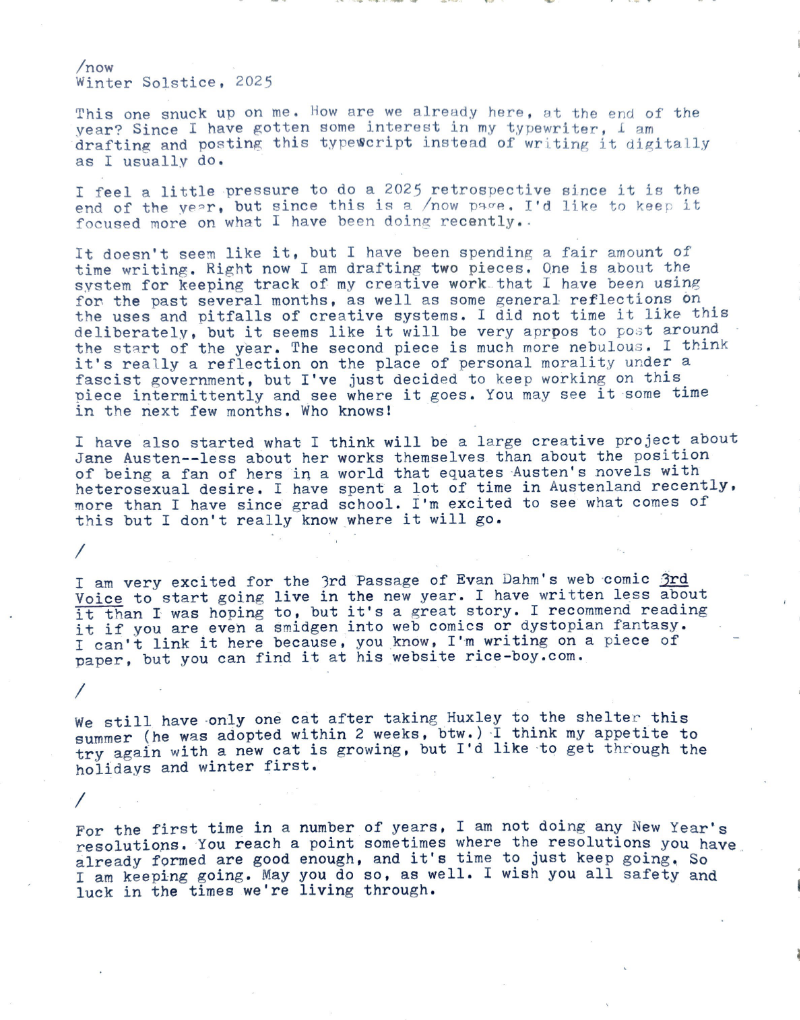/now
Winter Solstice, 2025

/
I got the idea of the /now page from Derek Sivers, which I found through 32-Bit Cafe.

/
I got the idea of the /now page from Derek Sivers, which I found through 32-Bit Cafe.